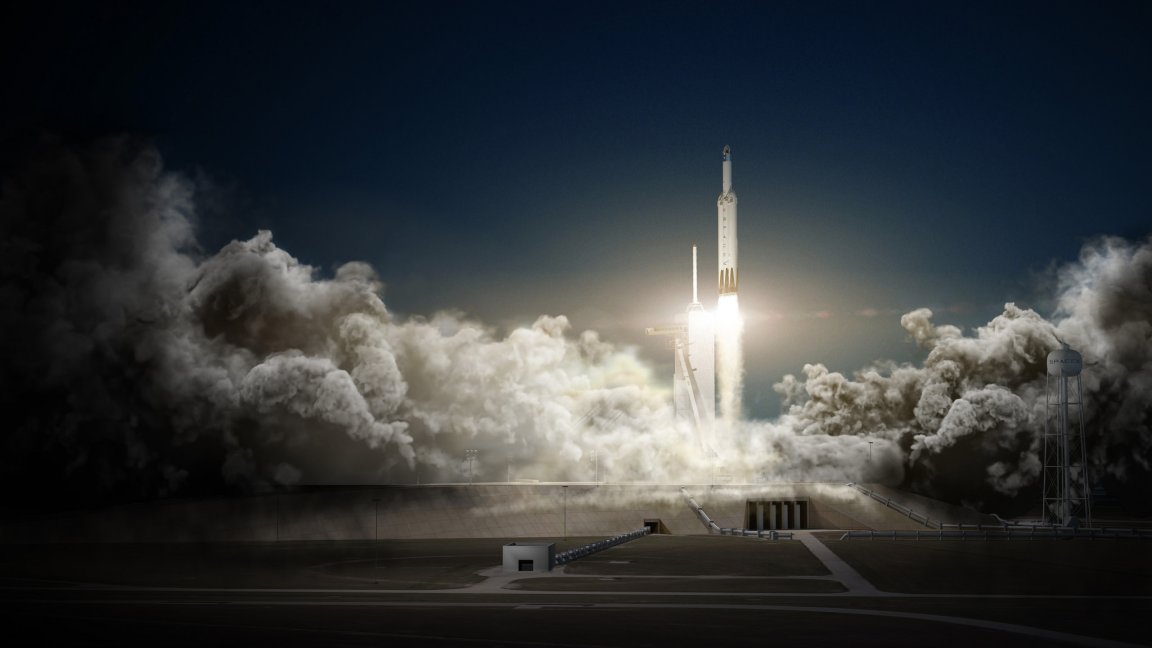
In six short words on an Instagram post Elon Musk announced the next step of SpaceX’s plan to eventually fly humans to Mars: “Falcon Heavy maiden launch this November.” The announcement means that the launch will be a little later than earlier predictions: Musk tweeted in June that “all Falcon Heavy cores should be at the Cape [Canaveral Air Force Station] in two to three months, so launch should happen a month after that.”
If the Falcon Heavy test is successful it will become the most powerful operational rocket in the world: using 27 Merlin rocket engines spread across three falcon 9 cores, it would have a liftoff thrust of 2.3 million kg (5 million lb) that is capable of carrying 54,000 kg (119,000 lb) into orbit — this is twice the payload of the next largest rocket, Delta IV Heavy, and SpaceX claim it will cost 66 percent less to deliver.

Musk followed his announcement by divulging a few extra details via Twitter. He clarified SpaceX’s plans to retrieve and potentially reuse the rocket’s boosters, later qualifying the ambitious goals by adding, “If we are lucky”
Musk’s cautious optimism mirrored his previous remarks to a crowd at the International Space Station Research and Development Conference in Washington, “There’s a real good chance that that vehicle does not make it to orbit. I want to make sure to set expectations accordingly.”
The next few months should be exciting for Musk on a number of other fronts as well: he has identified September as when updates on his plan to reach Mars will arrive, the Tesla Model 3 will continue to ramp up production, and the Boring Company will continue to make progress towards decreasing congestion in Los Angeles after its first elevator test earlier this week.